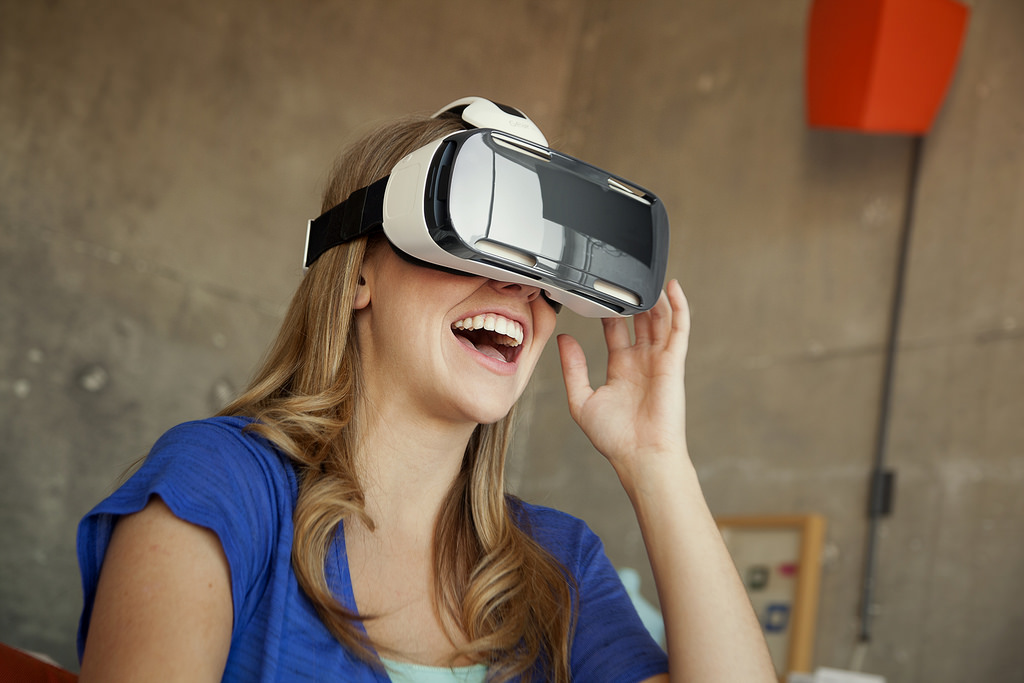 EMERGING TECH
EMERGING TECH
 EMERGING TECH
EMERGING TECH
 EMERGING TECH
EMERGING TECH
As we waited to hop into our self-driving car where we could lean back, put on a headset and enjoy some virtual reality entertainment, it occurred to us that there might be some flaws in the blockchain-based service we’d used to order up and pay for our ride. Could it be that the artificial intelligence was flaky? Or maybe it was just a glitch in the fingerprint reader we used to log in. In any case, our ride never showed. We don’t doubt that the technologies highlighted here do have potential, but the inflated expectations they generated this year might have been just a bit over the top.
Notwithstanding this month’s first glimpses of the super-secret virtual reality technology being developed by the richly funded Magic Leap Inc., the market performance of virtual reality technology has underperformed nearly everyone’s expectations. Facebook Chief Executive Mark Zuckerberg, whose company spent $3 billion to buy Oculus VR LLC in 2014, admitted earlier this year that “it’s going to take five or 10 more years of development before we get to where we all want to go.” Facebook twice cut prices on its Oculus headset this year and announced plans to release a $199 version next year. But is price really the issue? Some experts have suggested that people who are quite comfortable gathering in groups to stare at their mobile phones aren’t quite ready to go the next step and don headgear the size of diving masks. There’s no question that virtual reality is popular with the gaming set, but as a mainstream business tool, its considerable potential is still unrealized.

Image: Pixabay
Gartner Inc.’s 2017 Hype Cycle for Emerging Technologies placed blockchain just over the tip of the roller coaster summit and beginning its steep descent. That’s not surprising, given the excitement about blockchain as a means to streamline all manner of business processes, enable peer-to-peer markets and all but eliminate fraudulent transactions. We don’t mean to imply that blockchain is a failure. On the contrary, such blue-chip companies as JP Morgan Chase & Co. and IBM Corp. are making big bets on it. Blockchain is the foundation for the hot new funding mechanism of initial coin offerings. SAP SE is leading an initiative to apply it to the “internet of things.” And venture capital continues to flow. It’s just that blockchain demands a new way of thinking about mature processes, and most people still don’t understand it. Once attitudes change, its impact could be transformational — just not quite yet.
AI is an umbrella term for a host of subdisciplines that includes machine learning, deep learning, cognitive computing, neural networks, computer vision and robotics. Its formal definition – “the capability of a machine to imitate intelligent human behavior” — isn’t even relevant anymore, since today’s most intelligent machines can go leaps and bounds beyond the limitations of humans, at least for some kinds of work. Furthermore, AI isn’t a yes-or-no proposition. There are many types of intelligence, depending upon the application. The reemergence of this 40-year-old term has mainly provided an opportunity for people to debate whether it’s the end of humanity or a gateway to a better world. That has some value, but it isn’t very useful for people trying to make technology decisions. In the meantime, there is no end of money being thrown at companies that say they’re working on AI.

Image: Flickr CC
On the one hand, this has been one of the most overhyped technologies of the last three years. On the other, it’s almost impossible to underestimate its world-changing potential. Once self-driving vehicles dominate the roads, traffic accidents will plummet along with insurance rates, hospital costs and legal fees, not to mention the human suffering that accompanies them. Parking lots will disappear, transforming urban landscapes. Many people will no longer own vehicles at all, but will call them up as needed. Law enforcement resources will be redeployed elsewhere once everyone, or at least the AI in their car, drives safely. Millions of professional drivers will be put out of work, as will gas station owners, mechanics, insurance adjusters and others whose livelihoods depend upon keeping rolling stock rolling. All this is still many years away, though. As long as only a minority of vehicles on the road are autonomous, nothing changes much. Once the technology reaches critical mass, a lot changes very quickly. But many experts believe that’ll be at least 25 years from now.
Are we approaching the day when a fingerprint, retina scan or voice print will unlock troves of valuable data? Um, no. Despite all the anticipation about the potential for biometric security literally for decades, as well as its inclusion in mainstream products like Windows 10 and the iPhone X, white-hat hackers continue to demonstrate the almost breathtaking ease with which these security schemes can be fooled. The problem is pretty simple. Machines are better than people at identifying a face, but they aren’t yet better at identifying a photo of a face. You get the picture.
With James Farrell and Robert Hof
THANK YOU